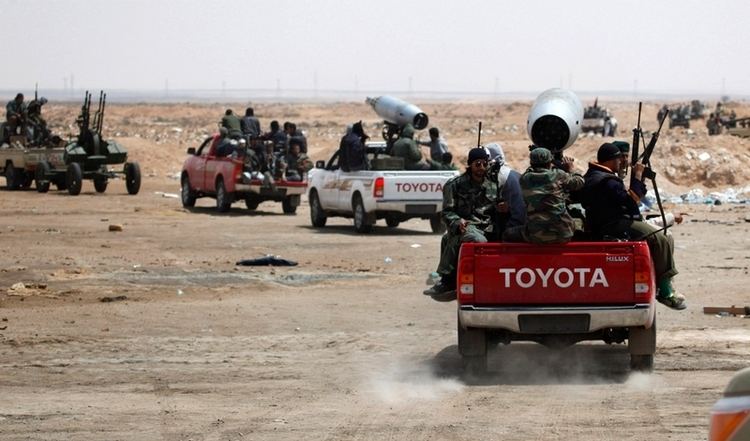Militant groups have long employed Toyota pickup trucks as versatile war vehicles, particularly in the Middle East. These trucks, known for their lightweight build, agility, fuel efficiency, and suitability for the local terrain, have become a favored choice. Back in 2013, Kyle Mizokami pointed out:
“These trucks are cost-effective, with 266 of them available for the price of a single tank. Moreover, they’re more dependable than tanks and easier to maintain.”
Toyota trucks are not limited to Afghanistan; Somali warlords also utilize them within Somalia. Even humanitarian aid organizations have been known to procure these vehicles from unconventional sources to ensure the safe delivery of aid to its intended destinations.
In the late 1980s, there was the infamous Toyota War, the final phase of the Chadian–Libyan conflict in 1987, which unfolded in Northern Chad and along the Libyan–Chadian border. The conflict garnered its name from the prevalent use of Toyota pickup trucks, which provided essential mobility to Chadian troops engaged in combat against the Libyans.
These modified vehicles, commonly referred to as “technicals,” are employed by various factions, including terrorists and militias. They are outfitted with an array of weaponry, as Mizokami notes:
“Some vehicles even received Blue Force Trackers, the U.S. Army’s digital position-reporting system.”
In 2015, ABC News reported that U.S. counter-terrorism officials sought Toyota’s assistance in understanding how ISIS had acquired a substantial number of pickup trucks and SUVs featured in their propaganda videos in Iraq, Syria, and Libya.
According to author William F. Owen of the Small Wars Journal “UK forces employed armed Land Rovers in both Iraq and Afghanistan and only recently added low levels of armour. Such vehicles can easily carry 4-6 men with light weapons, such as PKM and RPGs plus water, rations, and communications gear. Functionally and doctrinally there is no difference between a TOW-armed HMMWV and a Toyota Hilux with an AT-4/7/14 ATGM.”
Toyota responded by emphasizing its “strict policy to not sell vehicles to potential purchasers who may use or modify them for paramilitary or terrorist activities.” However, tracking stolen vehicles or those sold through intermediaries remains a challenge.
Quartz reported that buyers of the 2022 Toyota Land Cruiser were required to sign contracts pledging not to resell the vehicle within a year. This particular model, Toyota’s longest-running, had recently gone on sale. Toyota acknowledged the Land Cruiser’s popularity overseas and expressed concern about the flow of vehicles from Japan to regions with stringent security regulations.
The company cautioned that if dealerships were found to be involved in any violations of relevant laws, it could result in legal penalties, not only for the implicated dealerships but for Toyota Motor Corporation as a whole.
Toyota’s popularity extends beyond trucks, as one article suggests that approximately 90% of registered cars in Afghanistan are Toyota Corollas. These vehicles are favored for their affordability, good mileage, and the ease with which locals can access spare parts.

